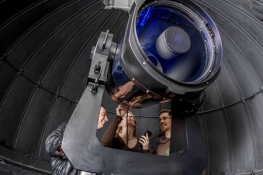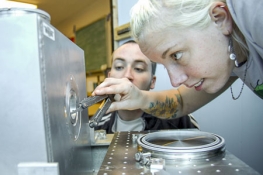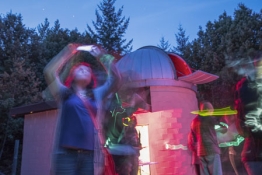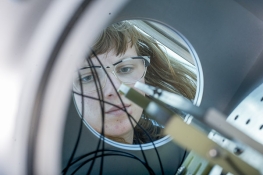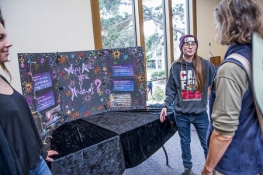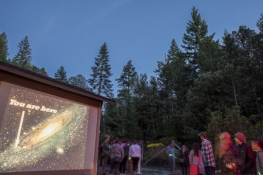Academics & Options
Physics & Astronomy gives you the perspective and problem solving skills needed to better understand our world and universe.
In the Physics & Astronomy programs, you will have the opportunity to get hands-on laboratory and research experiences while discovering the principles that make our universe work and learning about fundamental questions that remain unanswered. Small class sizes promote a sense of community with your classmates and facilitate engagement with faculty members. Our professional degrees in Physics and Astronomy prepare students for both graduate study in their discipline and a STEM career.
The Department of Physics & Astronomy offers three undergraduate paths:
- Loading...
The B.S. in physics is designed for those students who expect to enter one of the various fields of research or development in government or in private industry. Students can also move onto graduate studies and teaching at all levels. - Loading...
This concentration includes three specialized courses for those interested in a career in astronomy or astrophysics and is relevant for those who would like to pursue careers or graduate work in these fields, including the rapidly evolving area of gravitational wave astrophysics. - Loading...
The B.A. degree in physics is less specialized and more adaptable to studies in various fields, including preparation for teaching at the secondary school level.
and also offers two minors:
How well a student researches job alternatives, gains additional experiential background via research opportunities and internships, and takes advantage of educational and networking opportunities can have a large impact on the eventual career a student chooses to pursue. Students also have a strong chance of increasing their opportunities by strengthening their skills with additional course work from related disciplines, such as geology, chemistry, oceanography, biology, computer science, mathematics, etc.
Through the course of study, the physics student will develop (or further develop): a basic interest in natural phenomena and fundamental interactions, an understanding and appreciation of the scientific process, an inquisitive nature, high-level mathematical and analytical skills, the ability to perform laboratory experiments and draw logical conclusions from their results, and an understanding of the varied roles that scientists play in society.
Student Learning Outcomes
These degrees will teach you to:
- Become scientifically literate.
- Apply and interpret physical and mathematical models.
- Develop the breadth, depth, and rigor in physics needed to succeed in graduate school or the technical workforce.
- Design, perform and interpret laboratory experiments.
- Present technical information to a diverse audience in both written and oral formats.

